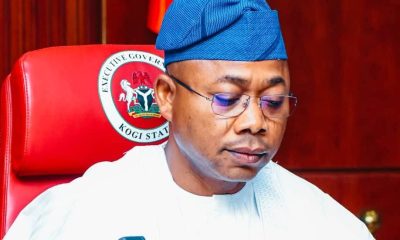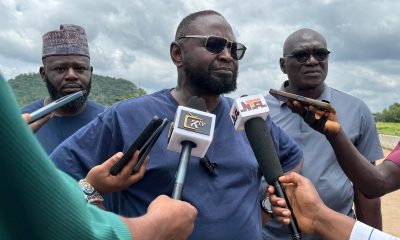Opinion
Reducing The Cost Of Governance In Nigeria Revisited
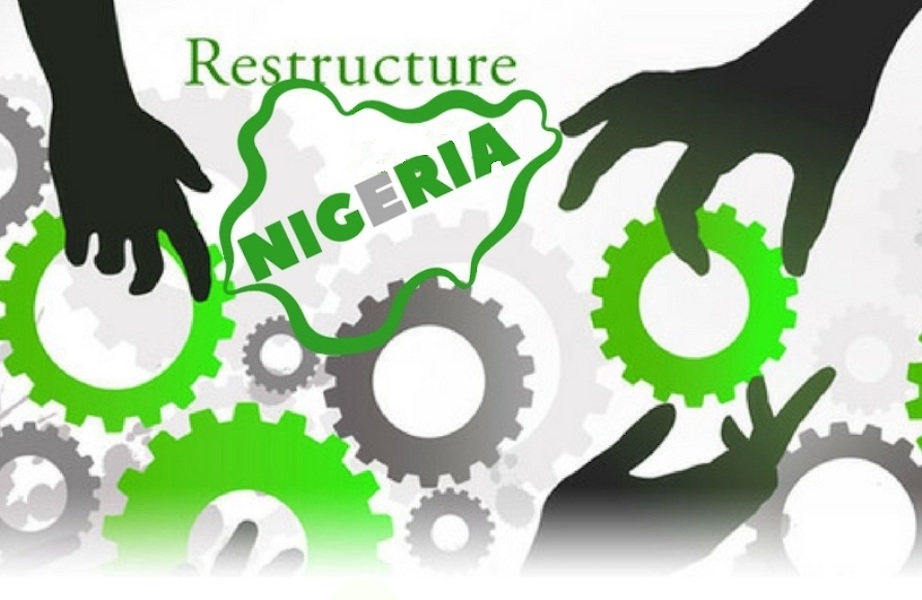
By Otobo and Obaze
Every so often, the calls for reducing the cost of governance in Nigeria, especially at the federal level, cast a spotlight on the spiraling recurrent component relative to the capital component of the federal fiscal expenditure. But also highlights the accretion of power and portfolios of the federal government.
The recent call in a newly released report by the Independent Corrupt Practices and Other Related Offences Commission (ICPC) underlined the fact that as a result of the expensive governance structure, less than 30 percent of the federal government revenue were allocated to capital projects.
ICPC’s report validated our op-ed of 19 May, 2019, wherein we argued that “the prevailing high cost of governance in Nigeria is attributable to both structural and operational factors”
ICPC, by advocating the restructuring of Nigeria into six regions as a measure pivotal to reducing the cost of governance, buttressed the growing recognition of the linkages between cost of governance and a plethora of structural factors.
Bold as this recommendation appears, it is one that has been long advocated by some statesmen, political leaders and policy analysts.
In contemplating reduction of cost of governance in Nigeria, it is useful to frame the tasks in terms of three concentric circles.
The first and innermost circle relates to the issues concerning the constitutional sources of the current high cost of governance.
The second circle pertains to the federal bureaucracy, which includes the ministries, departments and agencies of the executive, legislative and judicial arms of the federal governments, several of whose functions are duplicative or overlap.
The third circle pertains to the sub-national tiers of government – the state and the local governments.
To grasp the constitutional sources of the high cost of governance in the inner most of the concentric circles, it helps to explain the constitutional constraints on Nigeria’s economic performance and, particularly, how such constraints have impeded the growth of revenue base of the federal and sub-national tiers of governments. Three main constraints are germane.
First, while assigning exclusive statutory responsibility for management of natural resources to the federal government was intended to shore up its revenue; that choice has had the perverse effect of making the federal government overly dependent on oil and gas, while neglecting the development of other minerals resources and deepening corruption, with adverse consequences for revenue generation.
Second, the inclusion of power supply infrastructure in the exclusive list in the constitution deprives the states of the opportunity to license, produce and regulate electric power in response to their needs, thus limiting their economic output, employment and revenue base.
Third, the economic wherewithal of the states, including their performance and financial viability, has been impeded by granting the federal government multiple sources of revenue to the detriment of the states.
In addition to natural resources, the federal government collects revenue from value added taxes and business registration. These two sources of revenue ought to reside in the states, to give states competitive advantage through offering different incentives.
Also, the federalisation of so many standards across the country, especially, regarding wages, salaries and other public sector entitlements, has imposed huge fiscal burden on the states.
Constitutional, Political and Administrative (CoPA) reforms usually occur when the necessity of, or demand for, change is aligned with the political and financial incentives to do so. Nigeria has reached that critical juncture.
The political incentives are evident from the growing sense that the current constitutional and political system is dysfunctional and not delivering optimally for a majority of Nigerians. The financial cost of administering Nigeria’s federal system has become prohibitive.
The inertia in undertaking the needed reforms in the country is illustrated by the failure to act on successive constitutional and administrative reforms reports: the 2005 National Political Reform Conference; the 2012 Presidential Committee on Restructuring and Rationalising of Federal Governmental Parastatals, Commissions and Agencies; and the 2014 National Political Conference.
This has raised questions on the possible fate of the envisaged report from the Deputy Senate President Ovie Omo-Agege-led Constitutional Review Committee.
The lack of progress in implementing the wide-ranging proposals in previous reports is a cautionary pointer on what could be achieved in the current national context – in which even the use of the word “restructuring” evokes mixed reactions.
Advisedly, we have elected to use “reforms” -a more conventional term. Whatever reforms that are proposed would require a prudential approach, guided by a set of principles and pragmatic concerns.
The principles would include acknowledging that the cost of governance is one of many considerations, albeit an important one in CoPA reforms.
The other principle is subsidiarity – the notion that public policy issues are best addressed at the level nearest to the people. This is the predicate for state policing.
Other practical considerations subsist. The 2023 presidential and general elections campaign are afoot and forging consensus, which has proven elusive on CoPA reforms, would be even more difficult on the cusp of those elections.
The proposal to restructure Nigeria into six zones –an idea afloat since the 2005 National Political Reforms Conference – is unlikely to command broad based elite consensus.
There were heightened expectations that the recommendations of the APC Committee on Restructuring led by Governor El-Rufai, would help Nigerians to rally around a consensus on three low hanging fruits of CoPA reforms: resource control, state policing and abolition of the local governments.
Inexplicably, nothing happened, even as such action would have fulfilled President Buhari’s campaign promise to “initiate action to amend the Nigerian Constitution with a view to devolving powers, duties and responsibilities to the states.” Such inaction reflects the enduring lack of elite consensus on most nation building reforms.
There is no universally agreed optimal size of government. Still, when any tier of government fails persistently to meet its recurrent expenditure from its revenue, that is a warning signal to adopt fiscal prudence.
Nigeria must rescue itself from the fiscal cliff that it hangs. This will require thoughtful reflection and much needed action on the nature, scope and sequencing of CoPA reforms.
______
Otobo is a Non-Resident Senior Fellow at the Global Governance Institute, Brussels.
Obaze is Managing Director and Chief Executive Officer, Selonnes Consult in Awka.

Opinion
Tinubu’s Dark Mercy: How Presidential Pardon Turned Justice Into A Joke
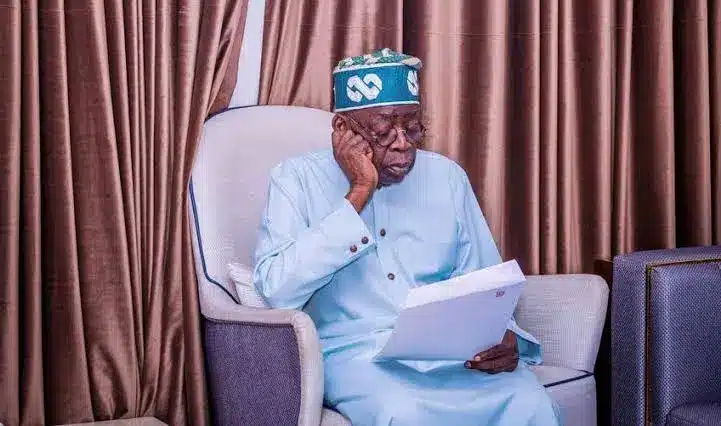
By Ademola Adekusibe
Something snapped in Nigeria yesterday. It wasn’t just the announcement that President Tinubu had pardoned 175 convicts; it was the final confirmation that in this country, crime no longer carries consequence. It was the state’s open confession that Nigeria’s justice system is now a casino, and those with connections always win.
Let’s start with one name that should haunt every soldier who ever wore the uniform: Major Suleiman Alabi Akubo. In 2008, a military court didn’t just find him guilty; it laid bare the horror of his betrayal. The man stole 7,000 weapons from the Nigerian Army, weapons meant for the nation’s defense, and sold them to militants who turned them on his own comrades. Soldiers died. Innocent Nigerians died. The country bled. And the General Court Martial, in its rare moment of courage, sentenced him to life imprisonment.
That was supposed to be justice. That was supposed to be a warning that no one, no matter how decorated, could betray the flag and walk free. But now, the same Nigeria whose sons were buried by bullets he sold has opened the prison gates and called it “presidential mercy.” Mercy for treason. Mercy for blood money. Mercy for a man whose greed armed killers and destabilized the nation.
If this is mercy, then what do we call justice?
And then there’s Maryam Sanda, a woman who, by her own actions, turned her matrimonial home into a slaughterhouse. The night she killed her husband wasn’t an accident; it was a progression of rage, five failed attempts before the fatal strike. The court found her guilty of culpable homicide and sentenced her to death by hanging. Nigerians thought it was closure. The law had spoken. But in this new Nigeria, even murder has an escape route, a back door guarded by sympathy, privilege, and presidential benevolence.
Today, she walks free. Her victim remains six feet below, voiceless, silenced forever. Is this how we honour the dead? By setting their killers free in the name of “mercy”? If Maryam Sanda deserves pardon, then what message are we sending to every man or woman enduring domestic violence? That if their abuser kills them, justice can later be undone with a signature?
And this isn’t even about two names. The rot runs deeper. Among those granted clemency were illegal miners, men who have turned parts of Zamfara and Niger State into killing fields. They were handed over to a politician, yes, a politician, as though the state were transferring cattle, not convicts. Do we even realize how insane that sounds?
Then there’s the drug traffickers, the billion-naira fraudsters, and bribe-takers like Farouk Lawan, once caught stuffing $500,000 into his agbada like a man packing sin into his conscience. They, too, found mercy. While ordinary Nigerians sit in jail for stealing yams, the powerful steal nations and go home with presidential blessings.
What sort of country pardons a man who sold weapons to militants but keeps forgotten prisoners locked up for years without trial? What manner of justice rewards murder with mercy but starves the poor of fairness? If clemency is now a luxury reserved for those whose crimes shook the nation, then we have entered the age of moral bankruptcy.
This isn’t compassion. It’s corrosion. It’s the state officially declaring that morality is negotiable, that you can destroy lives, arm terrorists, betray your country, and still find redemption as long as the corridors of power recognize your name.
And perhaps the cruelest part? The families of the victims, the widows, the orphans, the soldiers who died holding their rifles against bullets sold by Akubo, were not even consulted. Justice wasn’t just denied; it was mocked.
So yes, call it “Presidential Pardon” if you must, but let’s say what it truly is: a betrayal of every honest man who ever stood for something in this country. A message to every Nigerian that the law is not a moral compass, it’s a privilege card.
Tomorrow, when another officer sells arms to insurgents, when another wife kills her husband, when another politician embezzles billions, and we ask, “Why are people this reckless?” the answer will stare us in the face: because the system rewards the wicked and excuses evil when it’s done in expensive English.
This wasn’t mercy. This was moral suicide.
Credit: The Yoruba Times
Opinion
Nigeria @65: A Nation At a Crossroad Between Celebration, Reflection
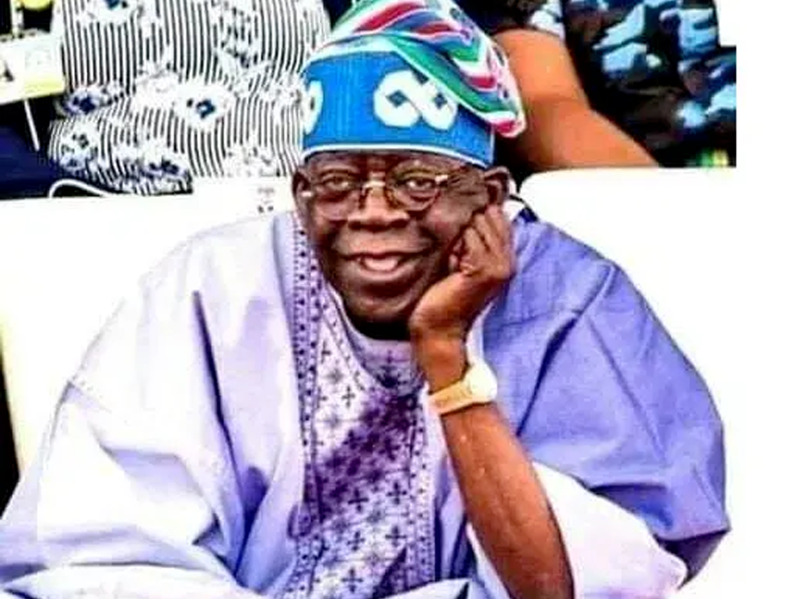
By Alao Adamadamosi Sunday, arpa
As Nigeria marks its 65th year of independence, citizens and leaders are grappling with a complex question: Is this an anniversary to celebrate, or a moment for sober reckoning?
Today, Nigeria celebrates 65 years of freedom from British colonial rule. The day is marked by a national holiday and is traditionally a time for parades, cultural shows, and presidential addresses .
However, the festivities are set against a backdrop of deep-seated challenges, prompting a national conversation on the very essence of the nation’s progress.
In his 65th Independence Day address, President Bola Tinubu struck a resolutely optimistic tone, declaring that the “worst is over” for Africa’s most populous nation.
He defended his administration’s contentious economic reforms, including the scrapping of fuel subsidies and the unification of foreign exchange rates, describing them as painful but necessary steps to “reset” the economy.
The president presented a suite of economic indicators to bolster his claim that the seeds of these reforms are now “bearing fruits”:
· Economic Growth: The second-quarter GDP grew by 4.23%, the fastest pace in four years.
· Falling Inflation: Inflation has declined to 20.12% in August, the lowest in three years, though it remains high.
· Trade Surplus: The country has recorded five consecutive quarters of trade surpluses, selling more to the world than it buys.
· Rising Reserves: External reserves have climbed to $42.03 billion, the highest level since 2019 .
This narrative of progress was echoed by government supporters. The Governor of Ogun State, Dapo Abiodun, spoke of “the enduring spirit of unity, resilience, and hope,” urging citizens to “look forward with optimism”.
Despite the official optimism, a chorus of critics and stark data points to a far more challenging reality for millions of Nigerians. A poignant editorial framed the nation’s condition as one of “independence without nationhood,” arguing that the dream of a unified, prosperous nation remains elusive 65 years on.
The challenges are profound:
Deepening Poverty: A World Bank report noted that over 54% of Nigerians live in poverty, with the rate soaring to 75.5% in rural areas . Other estimates suggest over 129 million Nigerians—more than half the population—live below the poverty line.
· Staggering Infrastructure Deficit: The country requires an estimated $3 trillion over the next 30 years to close its infrastructure gap. Notably, Nigeria has the largest electricity access deficit in the world, with 43% of its population (85 million people) lacking access to grid electricity.
· Ongoing Security Challenges: The nation continues to battle terrorism, banditry, and kidnapping, ranking sixth in the 2025 Global Terrorism Index . While the government claims security is improving , these threats remain a daily reality for many.
· A “Brain Drain”: Reflecting a loss of confidence in the system, data shows a significant increase in migration, with over 3.6 million Nigerians emigrating between 2022 and 2023 alone.
This divergence between official statements and public perception was symbolized by the federal government’s decision to cancel the official Independence Day parade, a move some interpreted as an acknowledgment that all is not well.
The cancellation of celebrations, as interpreted by cleric Prophet Sam Ojo, is a sign that “Nigeria needs healing”. This sentiment resonates with those who believe the path forward requires more than economic metrics.
Many analysts argue that Nigeria’s fundamental ailment is structural. The country has been attempting to govern its vast diversity of over 250 ethnic groups through a “largely unitary system” that stifles development and fuels resentment among regions feeling exploited or marginalized.
The solution, they propose, is an urgent return to true federalism—devolution of power to the constituent units to foster competition, accountability, and a sense of belonging .
As Nigeria steps into its 66th year, the dual narrative of progress and pain defines its independence anniversary. The government points to macro-economic green shoots, while citizens grapple with the daily challenges of survival.
The nation stands at a crossroad, and the most pressing task may be to bridge the gap between statistical recovery and the lived experience of its people, forging not just an independent state, but a true nation where every citizen can find “purpose and fulfilment” .
As we mark another October 1st, may this not just be a ceremonial celebration but a reminder of the work still ahead for leaders to act with integrity and for citizens to demand accountability.
Opinion
Benue Killings: Is This The President You Endorsed? (OPINION)

As Nigeria reels from yet another wave of bloodshed in Benue State—where recent gunmen attacks left more than 150 villagers dead, many burned alive in their homes—the nation’s attention turns, inevitably, to the man in whose name we voted: President Bola Ahmed Tinubu.
The unfolding tragedy in Benue is not an isolated outbreak of violence, but rather a grim symptom of a broader malaise: a leadership marked by performative gestures, political expediency, and a troubling paucity of empathy.
ABSENCE OF EMPATHY: THE MOKWA FLOOD AS PRELUDE

In late May 2025, torrential rains unleashed catastrophic flooding in Mokwa, Niger State. Over 200 lives were lost, hundreds of homes were submerged, and critical infrastructure—roads, bridges, markets—was swept away.
Yet, when President Tinubu’s condolences were needed most, it was Vice‑President Kashim Shettima who sat before distraught survivors, pledging federal relief on the President’s behalf.
Despite announcing a ₦2 billion reconstruction fund and dispatching 20 food‑loaded trucks, Mr Tinubu himself remained at his desk in Abuja, delegating his presence to envoys rather than offering the solace of personal solidarity. This physical absence was more than mere logistics; it set a tone.
When the country is in pain, its leader’s first act of compassion should be to stand among the afflicted. Instead, Nigeria witnessed a head of state whose body language signaled distance, if not detachment.
President Tinubu’s detachment in the aftermath of the Mokwa flood was not an isolated occurrence, but rather a continuation of an unsettling pattern of presidential absence during national tragedies.
One of the earliest examples came in June 2023, when a boat accident on the Niger River in Patigi, Kwara State, claimed the lives of over 100 wedding guests.
The tragedy shocked the nation and drew widespread media attention, yet President Tinubu neither visited the victims’ families nor made a physical appearance at the scene. His condolences came via a written statement, which many described as impersonal and formulaic.
Similarly, in September 2023, when flooding displaced thousands in Bayelsa and Kogi States, President Tinubu once again failed to show up in person.
Despite mounting public pressure and calls from local leaders for federal presence, the President remained in Abuja, directing federal agencies from afar and relying on surrogates to visit displaced persons.
These instances—prior to the Mokwa flood—suggest that the President’s current pattern of governance tends to avoid the emotionally resonant act of being present.
POLITICAL CALCULUS OVER HUMAN LIVES

While entire communities in Mokwa and Benue were grappling with loss, the President and his All Progressives Congress (APC) were already pivoting toward re-election strategising.
On May 22, 2025, barely weeks after accepting the mantle of national mourning, the APC officially endorsed Tinubu as its sole candidate for the 2027 presidential race—a ceremony replete with promises of economic continuity and reform.
Yet never once did the party pause to address the urgent insecurity that was devouring farms, markets, and families.
The optics are stark: while children and the elderly perished in unnamed villages, APC governors draped themselves in campaign paraphernalia, unaware—and perhaps uncaring—that their mandate to protect was being squandered in favor of political theater.
EMPTY WORDS ON THE ASHES OF BENUE

When gunmen descended on the Yelewata community in Guma LGA, sparing neither women nor children, President Tinubu’s preferred mode of engagement was a scripted condemnation via press statement.
“I will adjust my schedule to visit Benue people on Wednesday,” he declared, promising a personal visit to assess the damage.
The charred husks of homes and commerce in Benue stand as a mute reproach to a leader whose words betray no trace of sorrow in his countenance.
An authentic leader would have gone beyond televised sound bites, immersing himself in the grief of survivors—the orphaned children, the widows, the displaced—bearing witness to the human cost of insecurity under his watch.
GOVERNORS’ ENDORSEMENTS: A PARADOX OF LOYALTY

Perhaps the most poignant indictment of Tinubu’s presidency is the chorus of APC governors rallying behind him for a second term.
In the same breath that they praise his “economic reforms,” they ignore the fact that inflation has soared past 23 percent, that food security is now a privilege rather than a right, and that Nigerians no longer feel safe in their own communities.
This display of political loyalty, untempered by accountability, forces a question: when did governance become synonymous with uninterrupted tenure rather than service to the people?
At what point did infrastructure ribbon‑cuttings eclipse the imperative to safeguard lives?
THE BURDEN OF CHOICE

When Nigerians cast their votes in February 2023, many yearned for a president who would not only talk about reform but also personify compassion, decisiveness, and a hands‑on approach to crisis.
Instead, two years into his term, President Tinubu has cultivated an image of a distant executive—adept at policy pronouncements and partisan maneuvering, yet reluctant to walk the ground where suffering is most acute.
As the smoke still rises from the ruins of Yelewata, and as survivors grapple with loss, the nation must reckon with a disquieting reality: the leader we endorsed appears more committed to cementing political power than mending broken communities.
In the balance between campaigning for a second term and delivering on the most basic duty of governance—protection of citizens, the latter has been glaringly neglected.
Is this the president you endorsed? As Benue burns, and as the echoes of unfulfilled promises linger, this question demands not just a simple yes or no, but a collective reckoning on the values and expectations that guide our democracy.
Credit: Pulse (17 June 2025)
-

 News1 year ago
News1 year agoKogi Police Prohibits, Warns Against Use of Vehicles With Covered Number Plates
-

 News1 year ago
News1 year agoHow We Discovered Drugs In The Residence of Kwara Senator Accusing Us of Corruption. – NDLEA
-

 News2 years ago
News2 years agoKogi Govt. Commences Staff Audit For State Civil Servants Dec. 5th
-

 Politics2 years ago
Politics2 years agoKOGI2023: AA’s Candidate, Braimoh, Promises To Regenerate State’s Economy, Receives Decampees
-

 News2 years ago
News2 years agoPDP Will Expel Wike At Appropriate Time – Bwala
-

 News3 years ago
News3 years agoWAEC Releases 2022 WASSCE Results
-

 News3 years ago
News3 years agoSen. Smart Adeyemi Set To Kick-off N250M Empowerment Programs In Kogi West
-

 Solicited2 years ago
Solicited2 years agoYAHAYA BELLO: The Generalissimo!

